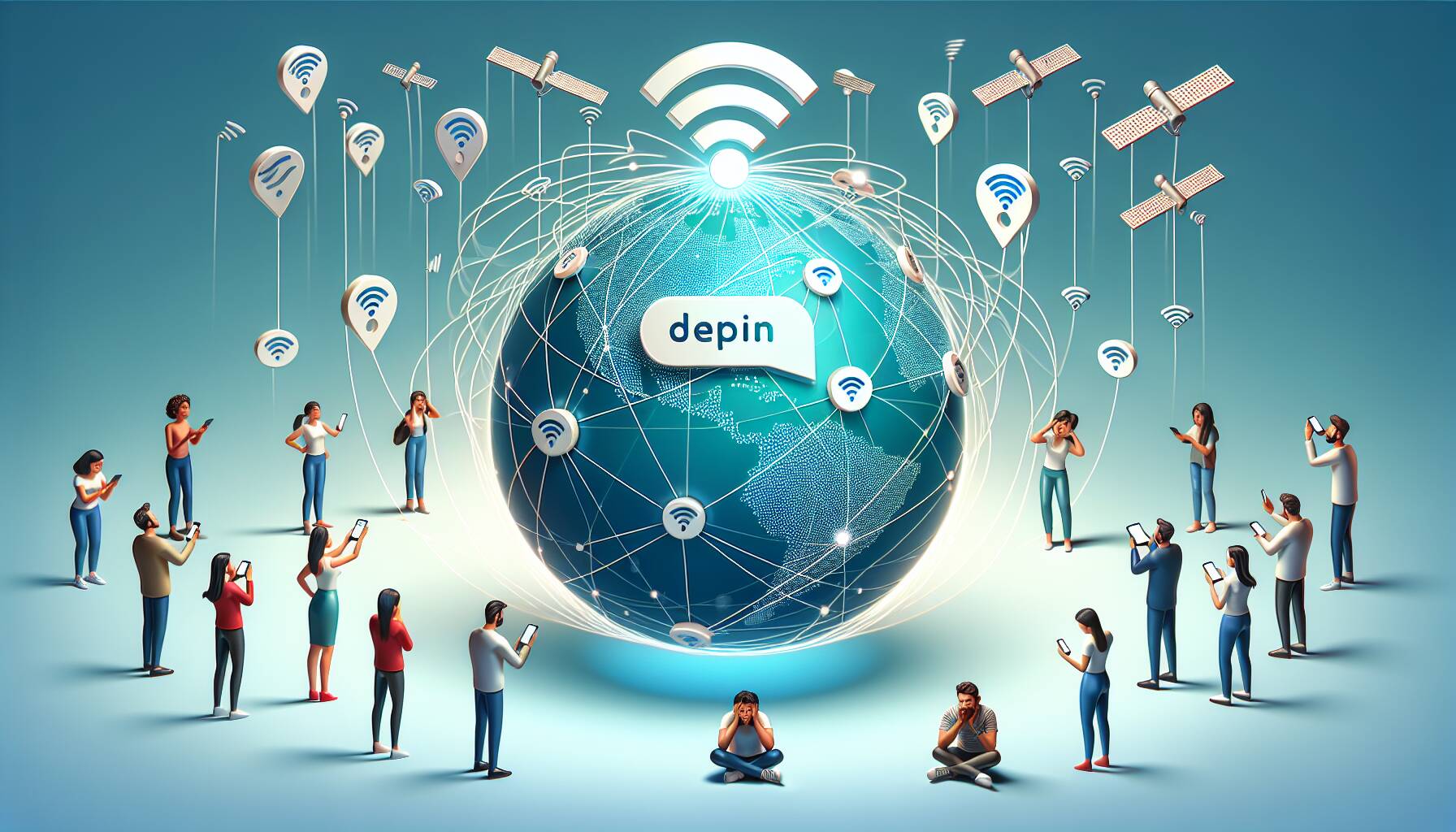The landscape of cryptocurrency is ever-evolving, responding to the unique challenges of our digital age. Recently, a notable conversation has emerged surrounding the concept of Decentralized Physical Infrastructure Networks (DePIN). Advocates within the industry argue that DePIN could play a crucial role in addressing persistent internet outage issues, which have left many individuals and businesses grappling with connectivity problems.
As internet outages become more frequent, the push for innovative solutions has intensified. DePIN represents a promising frontier, where decentralized networks can potentially enhance infrastructure resilience. By leveraging blockchain technology, supporters believe that such networks could create a more reliable internet experience for users—distributing data across multiple nodes to minimize risks and ensure consistent connectivity.
This movement toward broader DePIN adoption reflects a growing urgency to solve connectivity challenges in various regions, where stable internet access is critical for daily life and economic activity.
The call for action is not just theoretical; it points to the potential of merging technology with our infrastructural needs. With increased reliance on the internet across sectors—from remote work to streaming services—those in the crypto community are advocating for a transformation that could pave the way for a more resilient digital framework.

Importance of DePIN in Combatting Internet Outages
The growing reliance on the internet necessitates robust solutions to address connectivity issues. Here are the key points regarding the call for wider adoption of DePIN:
- DePIN Defined: Decentralized Physical Infrastructure Networks (DePIN) offer a mechanism to decentralize internet access.
- Combatting Outages: Enhanced resilience against internet outages through diversified internet access points.
- Community Empowerment: Supports local communities in establishing decentralized networks, reducing dependency on traditional ISPs.
- Cost Efficiency: Potentially lower costs for consumers as local networks can reduce operational expenses associated with traditional infrastructure.
- Increased Accessibility: Can ensure internet access in underserved and rural areas, bridging the digital divide.
- Data Privacy: Promotes user privacy by diminishing reliance on centralized service providers that often collect and monetize user data.
These developments in DePIN could profoundly impact daily life by enhancing connectivity reliability, affordability, and privacy for users across diverse regions.
Exploring DePIN: A Solution to Internet Outage Challenges in the Crypto Sphere
The ongoing discussions about DePIN (Decentralized Physical Infrastructure Networks) in the cryptocurrency community highlight its potential benefits as a robust solution for internet connectivity problems. Compared to traditional internet infrastructure, which often faces vulnerabilities and outages, DePIN proposes a decentralized framework that could enhance reliability and resilience. This model not only offers an alternative to centralized networks but may also empower users with greater control over their connectivity.
When analyzing similar developments in the tech industry, the call for DePIN’s adoption stands out as a competitive advantage in providing a decentralized approach to internet access. Unlike conventional models, which frequently succumb to single points of failure, DePIN aims to distribute power and resources, appealing especially to areas prone to internet disruptions. For instance, innovations in mesh networking have paved the way for alternative connectivity solutions, yet they often lack the robust security and scalability that DePIN could provide.
However, there are challenges associated with the implementation of DePIN. While the model could significantly benefit rural and underserved areas facing persistent internet outages, it may also create complexities for existing telecom providers, who could perceive DePIN as a threat to their market share. Additionally, regulatory hurdles and the costs associated with deployment could impede faster adoption.
In particular, marginalized communities and remote workers stand to gain immensely from DePIN’s decentralized structure, which could enhance their access to reliable internet services. Conversely, traditional internet service providers might struggle as consumer preferences shift toward decentralized solutions, forcing them to adapt their business models to remain competitive in a landscape that is increasingly embracing blockchain technology and decentralized systems.
















